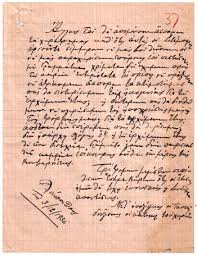
S.46 WESA applied to the following simple fact pattern that I recently met:
A will left everything to my children in equal shares, share and share alike. One child had predeceased the will-maker, leaving two children.
Applying the provisions of S46 WESA effected that the predeceased child’s share went to his two children, ie the grandchildren of the deceased.
S.46 WESA states:
46.(1) if a gift in a will cannot take effect for any reason, including because a beneficiary dies before the will-maker, the property that is the subject of the gift must, subject to a contrary intention appearing in the will be distributed according to the following priorities:
A) to the alternative beneficiary of the gift, if any, named or described by the will-maker, whether the gift fails for a reason specifically contemplated by the will-maker or for any other reason;
B) if the beneficiary was the brother, sister or a descendant of the will-maker, to their descendants, determined at the date of the will-maker’s death, in accordance with section 42(4) ( meaning of particular words in a will)
C) to the surviving residuary beneficiaries, if any, named in the will, in proportion to their interests.
(2) If a gift cannot take effect because a beneficiary dies before the will-maker, subsection 1 applies whether the beneficiary’s death occurs before or after the will is made.
Terezakis Estate 2018 BCSC 805 discusses section 46 of WESA relating to an interpretation of the residue of a will that dealt with its interpretation with respect to two of five children who had predeceased the will maker.
The two children who had predeceased the will maker also left children.
The residue clause of the will was confusing as to whether it was the intention of the will maker to leave the share of any child who might have predeceased the testator to the children of the predeceased children ie to the grandchildren of the deceased.
The court applied the armchair rule of construction that requires the court to put itself in the position of the testator at the time when the will was made and to construe the language from the vantage point in order to determine the actual or subjective intent of the testator –Re Burke (1960) O.R. 26 (C.A.).
The court noted that the will information sheet reflected that the testator presumed wishes to ensure that her grandchildren receive a share of the residue of her estate in the event that any of her children predeceased her. This was the expressed intention of the testator at the time the will was drafted, and the court applying the rule armchair rule, stated that it was the best evidence upon which the will should be interpreted by the court.
The court referred to both sections 42 and 46 of WESA.
Section 42 WESA states:
42. This section is subject to a contrary intention appearing in a will.
42(4) gifts of property to a class of persons that:
a) is described as a will makers issue or descendants, or by a similar word and
b) b) encompasses more than one generation of beneficiaries, must be distributed as if it were part of an intestate estate to be distributed to descendants.
The court was also mindful of the presumption that a testator does not intend to create an intestacy- Milwarde-Yates v Sipila 2009 BCSC 277 at para. 49.
S.46 WESA states:
1) if gifts in a will cannot take effect for any reason, including, because of beneficiary dies before the will maker, the property that is subject of the gifts must, subject to a contrary intention appearing in the will, be distributed to the following priorities:
a) to the alternative beneficiary of the gifts, if any, named are described by the will maker, whether the gifts fail for a reason specifically contemplated by the will maker, or for any other reason;
b) if the beneficiary was the brother, sister, or a descendent of the will maker, to their descendants, determined that the date of the will maker’s death, in accordance with section 42(4) WESA (that refers to the particular words in a will);
S 46(2) states:
2) if gifts cannot take effect because of beneficiary dies before the will maker, subsection(1) applies whether the beneficiary’s death occurs before or after the will is made.
The court accordingly ordered that the distribution of the estate be made equally among her children and grandchildren, being the grandchildren of the predeceased children.




